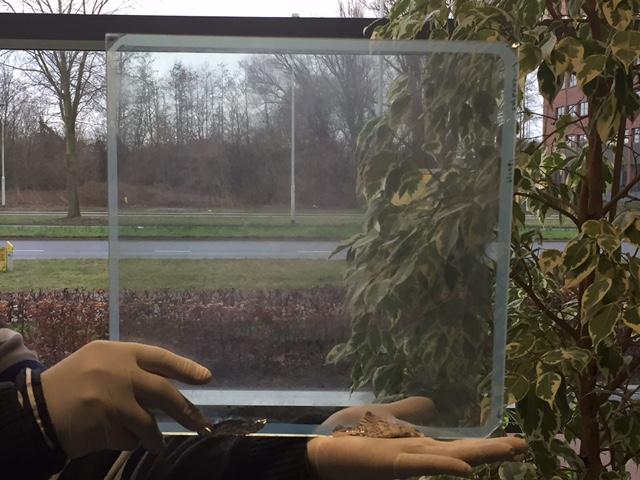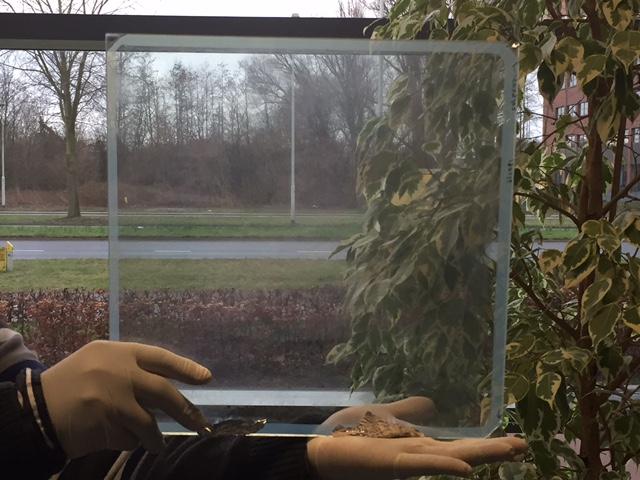
Credit: Eindhoven University of Technology
Smart windows that act as blinds in the summer and let all the sunlight through in the winter. That's the idea of the reflective windows Hitesh Khandelwal developed during his doctoral research at TU/e, that are able to reflect invisible infrared light but allow visible light through. In addition these windows can be 'switched on and off'. This new technology cuts the energy consumption for cooling and heating buildings by 12%. Khandelwal received his PhD for this innovation, on the basis of organic liquid crystals, on Thursday 11 May at Eindhoven University of Technology.
Heating, cooling and lighting buildings account for half the energy consumption in the built environment. Daylight plays an important role here, with incoming sunlight during the summer causing high indoor temperatures, which can lead to much more substantial use of air-conditioning in hotter countries. In the winter sunlight is a source of heating, which saves fuel costs.
Becoming dark or discolor
Windows that reflect sunlight have been around for a long time but a major disadvantage is that they often reflect visible light and therefore become darker and/or discolor. In addition, the windows are static, which means that they will always have a cooling effect, for example, even when this is not necessary, as in the winter. So if you have these windows, in the winter homes have to burn more fuel to maintain an equitable temperature.
On/off switch
The smart reflective windows developed by Khandelwal can keep out light with a wavelength of 700 nm to 1400 nm. This light is in the infrared range and invisible, but still contains nearly 50% of the energy from sunlight. The innovative thing about these windows is also that they can be switched on and off. Users can use an on/off switch to do this or make use of an automatic option on the basis of temperature sensors, for example.
Reflective layer
The reflective layer of the window contains organic liquid crystals, like those familiar to us in our smartphones, which can selectively reflect light of a certain wavelength if they are arranged in a special way. Applying an electrical charge, these molecules can be 'aligned' and reflect the sunlight. By adding different liquid crystal molecules, Khandelwal was able to block nearly 100% of the sunlight between 700 nm and 1400 nm, yet the transparency of the visible light was still around 90%, comparable with the transparency of double glazing.
Cars and greenhouses
The coating already works with optimum effect between two panes of glass. To bring down the costs, the doctoral student also developed prototypes of a coating that can be applied on existing panes. Apart from use in buildings, the smart windows are also suitable for reducing energy consumption in cars and greenhouses.
###
Media Contact
Xavier Theunissen
[email protected]
31-063-837-0739
@TUEindhoven
http://www.tue.nl/en
Original Source
https://www.tue.nl/en/university/news-and-press/news/10-05-2017-switchable-smart-windows-reduce-energy-consumption-significantly/





